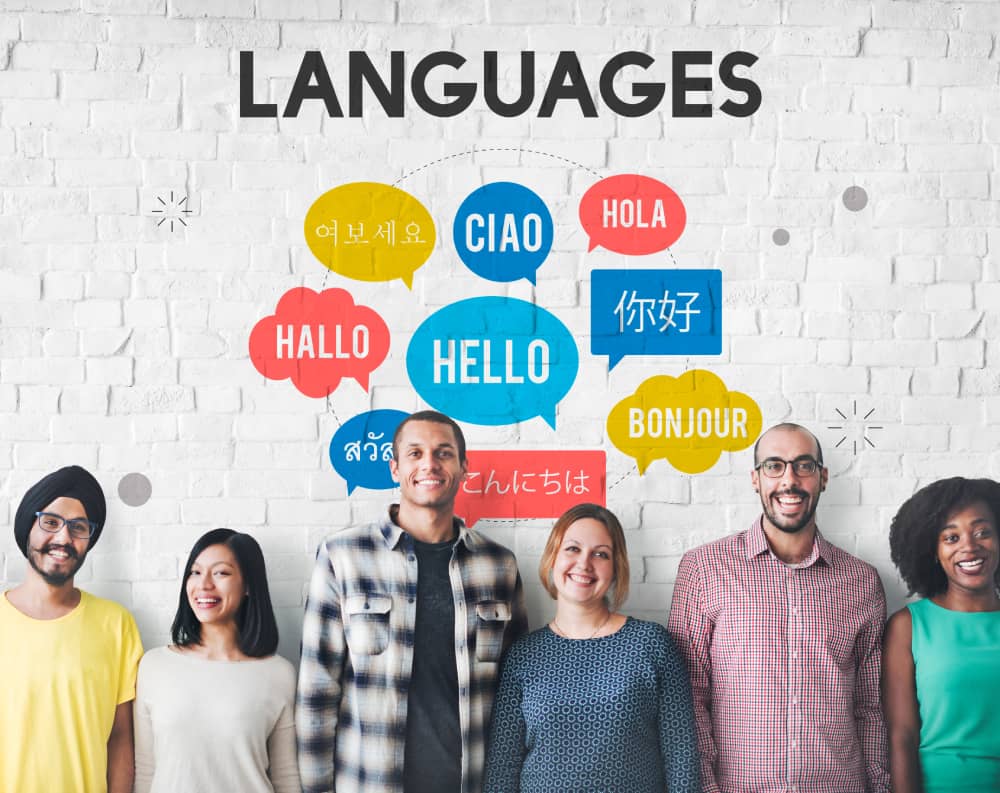We live in an era where boundaries are blurred, and cultures intersect daily, making multilingualism not just a useful skill, but a necessity. In today’s interconnected world, the ability to communicate across languages is more valuable than ever.
This post explores the significance of language skills in our increasingly diverse global society. Whether for personal growth, cultural understanding, or professional advantage, learning a new language opens doors to a multitude of opportunities.

The Rise Of Globalization And Language Diversity
In our modern world, globalization has bridged distances, bringing together people from varied linguistic backgrounds. This convergence has made our planet a mosaic of languages, each representing a unique culture and perspective.
Global trade and international travel have played pivotal roles in this transformation. Businesses now routinely operate across continents, necessitating communication with clients and partners in a range of languages. This shift has elevated the importance of language skills in the corporate world, where multilingual employees are increasingly sought after.
The digital age has further accelerated this trend. The internet has connected individuals across the globe, fostering interactions that span different languages. Social media platforms, forums, and online marketplaces have become spaces where language diversity is visible and essential for effective communication.
As the world continues to intertwine, the value of language skills becomes increasingly clear. Multilingualism is an asset and a critical component of navigating our globally interconnected existence.
Personal Benefits Of Language Learning
Learning a new language offers numerous personal benefits that go beyond mere communication.
-
Cognitive Advantages
Studies have shown that those who speak multiple languages tend to have improved memory, enhanced problem-solving skills, and greater creative thinking abilities. Learning a new language challenges the brain, keeping it active and agile.
-
Cultural Exposure And Understanding
Language is a gateway to understanding different cultures. With each language learned, you gain insights into the customs, traditions, and viewpoints of other societies, fostering empathy and broadening your worldview.
For those interested in exploring Chinese culture and language, Yi Mandarin Courses offer a comprehensive learning experience. They focus on language skills and provide insights into the rich history and societal norms of China.
-
Improved Communication Skills
As you learn how to express yourself in another language, your overall communication skills improve. This includes better listening skills, a more nuanced understanding of tone and context, and an enhanced ability to articulate thoughts.
-
Personal Confidence And Growth
Mastering a new language is a significant achievement. It boosts confidence and provides a sense of accomplishment. Additionally, it can open up personal opportunities for travel, enjoying literature and media in its original language, and forming new relationships.
In this global age, the personal benefits of language learning are profound and far-reaching. From cognitive development to cultural appreciation, each new language we learn enriches our lives and expands our horizons.
Professional Advantages Of Multilingualism
Being multilingual can offer significant advantages in the professional world.
-
Career Opportunities
Multilingual individuals often have access to a wider range of job opportunities. Fields such as international business, diplomacy, and translation services especially value language skills. Knowing multiple languages can open doors to roles in global companies and organizations.
-
Competitive Edge In The Job Market
In many industries, being fluent in more than one language can set a candidate apart from others. Employers view multilingualism as a valuable skill that can contribute to the company’s international dealings and cross-cultural communications.
-
Enhanced Professional Relationships
Language skills can help in building stronger connections with colleagues, clients, and partners from different parts of the world. Effective communication in a person’s native language can foster trust and understanding in professional settings.
-
Higher Earning Potential
Studies have shown that multilingual employees often have the potential for higher earnings. The ability to communicate in multiple languages is seen as an asset that can justify better compensation.
Multilingual skills can significantly enhance career prospects and lead to more rewarding professional experiences.
Challenges In Learning New Languages
While learning a new language is rewarding, it comes with its own set of challenges.
-
Age Factor
It’s often believed that learning a language is easier for children than adults. While children may have advantages in pronunciation and acquisition, adults have better self-discipline and learning strategies.
-
Time Constraints
Many people find it hard to dedicate time to language learning due to busy schedules. Setting realistic goals and integrating language practice into daily routines can help mitigate this.
-
Resource Availability
Not everyone has access to quality language learning resources or native speakers. However, the internet offers a wealth of materials, including online courses, language learning apps, and virtual language exchange communities.
-
Fear Of Making Mistakes
Fear of embarrassment can hinder language learning. It’s important to embrace mistakes as a natural part of the learning process.
-
Plateau Effect
Many learners reach a stage where their progress seems to stall. Overcoming this plateau requires varied learning methods and perhaps advanced-level language instruction.
Despite these challenges, with the right approach and resources, learning a new language is an achievable and fulfilling goal. Embracing the learning process with patience and persistence is key.

Technology And Language Learning
Technology plays a crucial role in language education in this digital era, reshaping traditional learning methods and providing innovative tools for students worldwide.
-
Digital Learning Platforms
Online courses and language learning websites have revolutionized access to education, allowing learners to study at their own pace and convenience. These platforms often include interactive elements, making learning more engaging.
-
Mobile Language Apps
Apps have become a popular tool for language learners. They offer interactive lessons, games, and quizzes, making it easier to practice on the go.
-
Artificial Intelligence (AI) And Chatbots
AI-driven programs and chatbots enable learners to practice conversation without the need for a human partner. They offer personalized feedback and adapt to the learner’s level.
-
Online Communities And Language Exchange
Social media and language exchange websites connect learners worldwide, facilitating practice with native speakers through text, voice, or video communication.
Technology has made language learning not only more accessible but also more interactive and tailored to individual needs. It continues to open new pathways for learning and practicing languages in dynamic and effective ways.
Conclusion
Navigating a multilingual world requires more than just understanding different languages. It’s about embracing the rich diversity and opportunities that come with language skills. From personal growth to professional advantages, the benefits of multilingualism are vast and varied.
As we continue to forge connections, communicating across languages is a key skill, opening doors to a wider understanding and deeper global integration.








